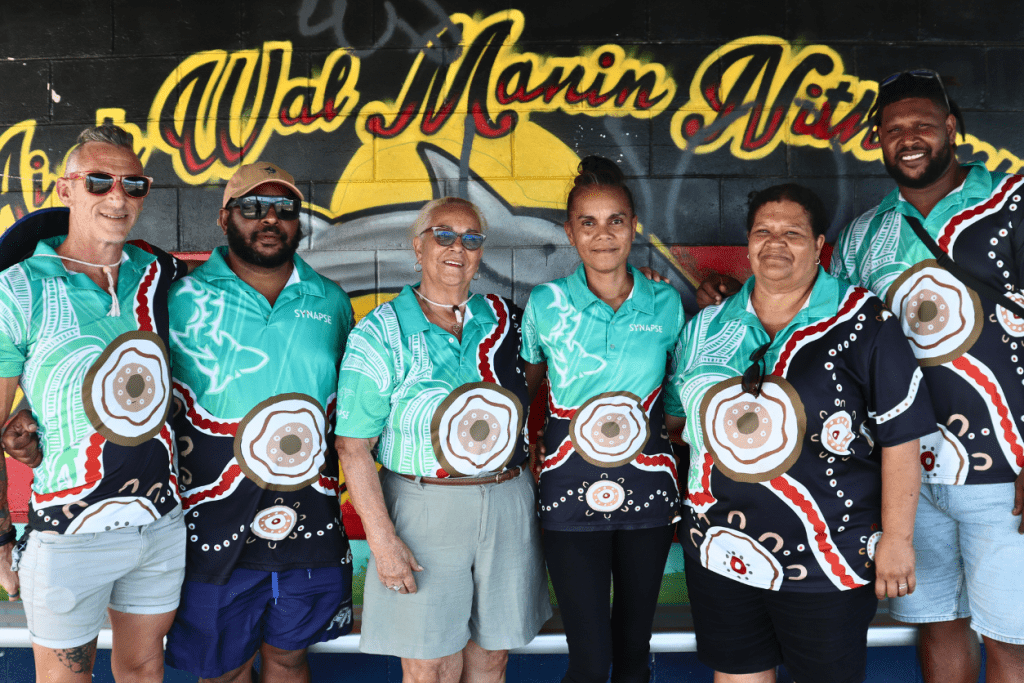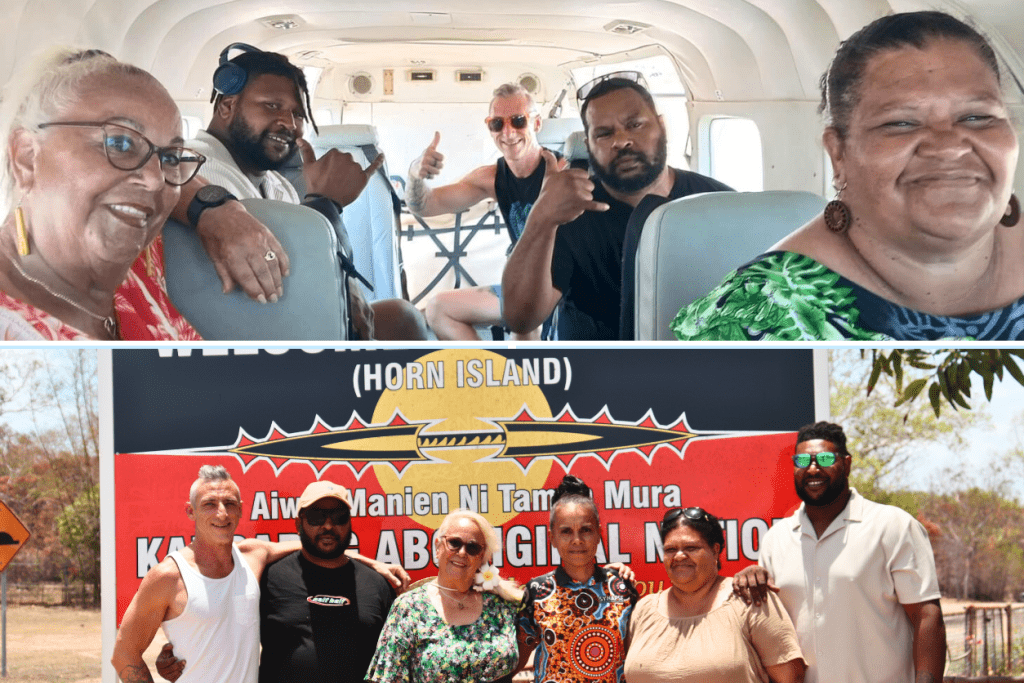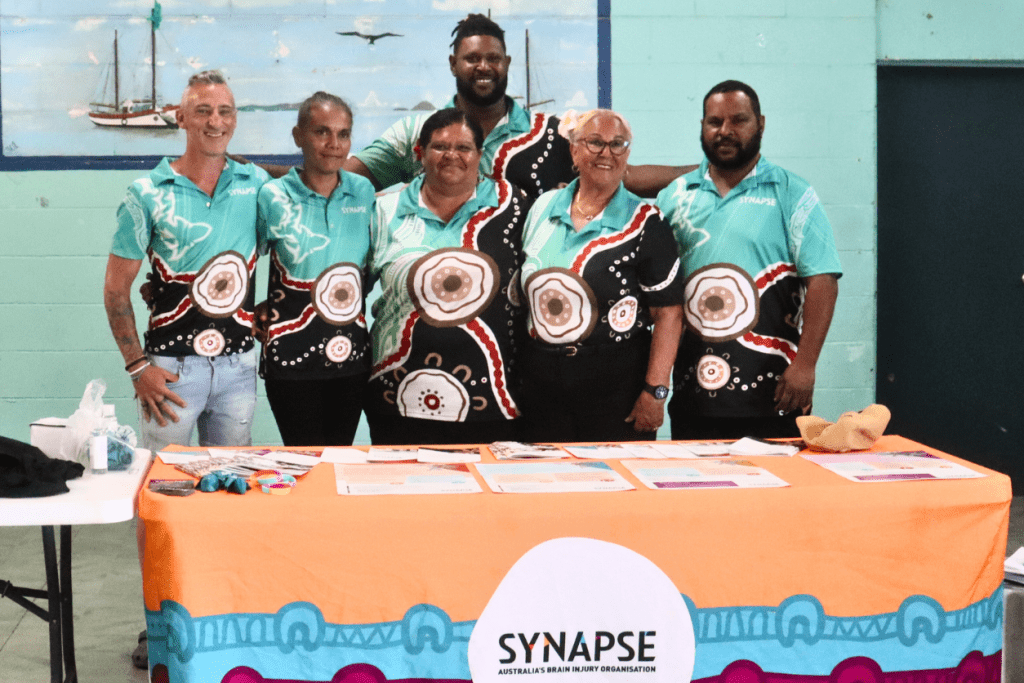Connections in the Islands

Recently members of our team travelled up to the Torres Strait Islands to yarn with island communities about brain injury and its impacts on their lives. Our team includes many members of these communities, a uniqueness of Synapse is that we are the communities we support and advocate for – the two are not mutually exclusive but one.
The remoteness of some of the islands adds to the complexity of getting assistance for basic needs, let alone receiving proper medical attention when it is required most. How brain injury impacts each person cannot be understood without understanding the context of the person’s life, what’s important to them to feel connected and strong in themselves and their identity. Only then can we understand how brain injury impacts what is important to a person or the life and connection that makes life meaningful for them.
For a victim of domestic violence on an island without any service or refuge or police enforcement, escaping violence is a choice of leaving family and culture to flee your home, not a call to local police to intervene immediately and find an undisclosed place to be safe from harm, in the immediate. Imagine instead that as a victim of violence it may take days or weeks before police intervention arrives.
A health complaint likely will wait weeks or months until a visiting doctor arrives on a routine scheduled visit unless serious enough to be medically evacuated from your home by helicopter to a faraway location.

Our strong Torres Strait Islander team keep us ever focused on recognising that First Nations approaches are not adequate to recognise the vast differences between Torres Strait and Aboriginal cultures. Be that difference in language, geography, cultural protocol or spirituality. Synapse has committed to bringing our work to the Torres Strait community whether Torres Strait Islander people on the mainland or in the Torres Strait Islands. This requires us to listen and learn from community about how culture and life is impacted by brain injury, how it’s understood and the unique challenges in accessing services that are culturally informed or to remain connected to culture.
Over a number of years Synapse has spent time in the Torres Strait Islands listening and learning from community and elders to better understand what is needed to make a difference, to ensure Synapse is a stronger voice for Torres Strait Islander people; our people. This is our obligation to our team, our families and communities. This requires understanding of Torres Strait culture, not generalised First Nations approaches that are designed to limit or manage diversity for ease of government funding, program development or delivery. This is more than some principles or cultural adaptations to services to be less culturally ignorant. Our strong Torres Strait Islander team have brought Synapse to their home communities and families to make a difference in their community that is meaningful to their families and respectful of their culture.
From Thursday Island, to Horne Island, Boigu, Mer, Iama, Warreber, Poruma, Mabiag, Masig. We have listened and learned from community about what is needed and what community wants Synapse to contribute. Understanding how brain injury impacts culture and community life is central to understanding what is then needed to improve support and knowledge about brain injury. Placing this knowledge alongside and in the hands and minds of community respects the fact that cultural knowledge is the foundation of any understanding and any solution. We are not just educating community about brain injury, they’re educating us about culture.
We know there is high prevalence of brain injury connected to incarceration, homelessness, exposure to violence as victim and perpetrator, substance abuse, and so many other challenges in Australian society. Challenges that attract government investment, but frequently investment in the very things that reinforce continuing disadvantage and othering. We can contribute to change by listening carefully and respecting the knowledge and the guidance from communities.
We offer the greatest respect to Elders, families and communities that have invited and welcomed us to learn. We remain ever grateful and proud to have strong Aboriginal and Torres Strait leadership both within and outside of Synapse.
These are the voices that matter. These are the stories of culture and identity that hold Synapse strong in our resolute commitment to Aboriginal and Torres Strait Islander communities and self-determination.
